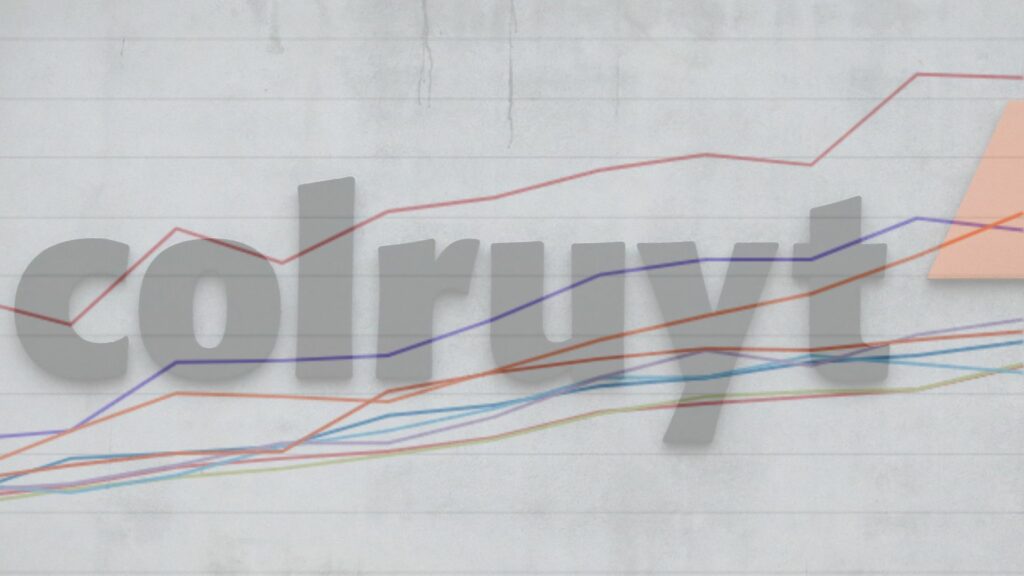After sharp price increases in spring, groceries in Belgium have risen barely 2% in the past six months despite energy prices and inflation going through the roof. To understand why the cost of food isn't rising at the same rate as other goods, it is important to understand the "Colruyt effect".
After numerous suppliers announced price increases, Het Belang van Limburg launched a supermarket barometer on 1 November 2021. This monitored the price of 40 products from four chains (Colruyt, Delhaize, Albert Heijn and Carrefour) for a year. Six products disappeared from the range during the year or changed quantity per pack and were removed from the analysis.
The total price of the remaining 34 products increased by more than 10% over the past year. A shopping trolley that cost €128.73 last year is now €142.13 – almost matching the current inflation rate of 12.27%, the highest since 1975.
Supermarkets take the hit
Most of the increase in prices noted above occurred in the first six months: between November 2021 and May 2022, the price of groceries rose by an average of 8%. In the last six months, it increased by only 2%. "The sample is small, but the trends are definitely correct," said retail expert Gino Van Ossel.
However, energy costs have soared since May: electricity became 74% more expensive and the price of natural gas doubled. Many unprocessed foods such as beef (+9.4%), flour (+25.2%) and coffee (+17.9%) have also become more expensive. But the rise in wholesale prices has not just been passed on to the consumer.
Graph charts the evolution of wholesale prices for raw ingredients over the past year. Credit: Statbel
"Many people think that production cost and price are directly linked, but that's not the case," said Van Ossel. "The price is also determined by market competition and the principle of supply and demand." And demand influenced supermarket prices more than ever last year.
"In November last year, we were still euphoric: the pandemic was nearing its end and we were able to celebrate Christmas with the family again... As we started eating out less during the pandemic, demand for vegetables and fruit shot up. It was inevitable that that demand would start shrinking again in 2022."
Related News
- Russian supermarket closes doors in Belgium after just four months
- Supermarkets take inflation blow: Lidl posts €51.2 million loss
That decreased demand brought sharp price increases at the beginning of the year, putting competition between supermarkets on edge. "Suddenly Colruyt was losing market share after years of growth," said Van Ossel. "When the economy is going well, it is not good for discounters such as Colruyt, Aldi and Lidl. In response, Colruyt pulled out all the stops to make up for lost market share. For example, the chain has been very firm in its price negotiations with suppliers”.
Colruyt’s crucial role
With inflation rising sharply following Russia's invasion of Ukraine, consumer confidence crashed. "Since then, people have been paying close attention to their household expenditure, allowing discounters to regain market share at the expense of the other chains, such as Carrefour and Delhaize."
Van Ossel states that competition between retailers largely explains why consumers have been cushioned from the rampant inflation in the price of many wholesale products. "That's also why prices are rising less quickly here than in the Netherlands or Germany. Colruyt plays a crucial role thanks to its lowest-price guarantee in which prices are determined by the competition."
As for grocery shopping actually getting cheaper, Van Ossel cautions that this is very unpredictable with so many factors involved. "How will the war in Ukraine develop? Will China invade Taiwan? Inflation is predicted to fall in the spring but at the same time wages in the Belgian food industry will be indexed in January."
Many products do not come from Belgium, adding to the uncertainty.

